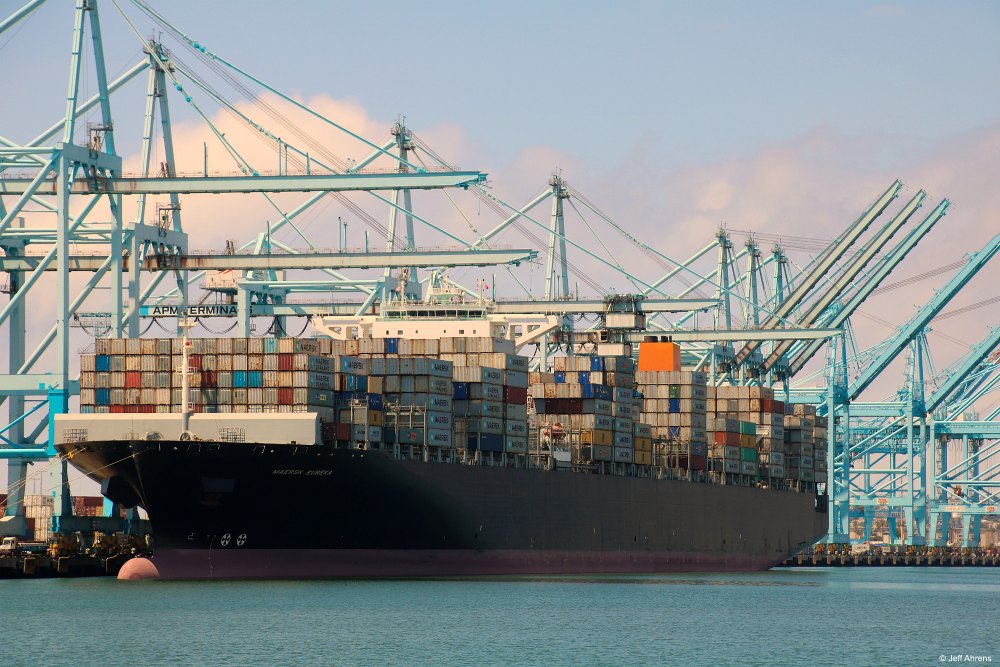““[T]he use of economic sanctions carries with it a moral and economic price that is often difficult to justify,” especially in times of weakened economies.[1]”
Western states across the globe are waging economic warfare against Russia in response to Vladimir Putin’s decision to invade Ukraine.[2] Over 30 countries are leveraging half the world’s gross domestic product to suffocate the Russian economy in the hopes of de-escalating the fighting – dwarfing previous economic responses.[3] The United States and its allies are trying to inflict maximum punishment with minimal impact on peripheral States.[4] But even with a surgical approach, the full consequences of the sanctions may spill over into global markets. While policymakers aim to dislocate Russia from the world economy, the “impact” of the sanctions “must be weighed against the possible unintended consequences” on allied States.[5]
The sheer speed and power of the sanctions recently imposed are testing the will of “Fortress Russia.” But waging economic warfare comes at a cost.[6] Especially when it’s waged during a period of global escalating inflationary pressures and supply chain disruptions.[7] Russia’s economy is clearly showing signs of strain, but at what cost?[8] Oil prices are rising, the financial system is deteriorating, and inflation is boiling over.[9]
Citizens around the globe are experiencing higher energy prices because of the abrupt removal of Russian oil from the world’s energy supply. The pariah-like nature of Russian oil has led buyers to purchase their energy elsewhere, effectively creating a self-imposed embargo. The shortage is resulting in an energy price surge.[10] Americans are beginning to feel the weight of the increase at the gas pump as the national average reaches $3.61 a gallon, one dollar higher than a year ago.[11] Europe’s energy prices are also starting to weigh on businesses and households.[12]
Surprisingly, the current increase in energy prices is not the direct result of sanctions. Europe and the U.S. explicitly refrained from sanctioning Russia’s energy industry, allowing them to continue exporting oil and gas, and receive energy payments through Swift, an international payment system of which Russia is the second-largest user.[13] The hesitancy to sanction Russia’s energy industry is primarily due to Europe’s heavy reliance on Russian energy exports and fears of triggering higher inflation. Thus, the energy markets have remained largely untouched by the U.S., E.U., and the U.K., aside from minor sanctions on oil and gas refining technologies.[14]
The sanctions have exposed both Europe and the U.S to potential recessions. On February 28, 2022, markets showed signs of financial distress as bank stocks, an indicator of financial strength in Europe and the U.S., fell further amid declining markets.[15] A senior economist at Allianz stated “further ramping up of western sanctions on Russia, including on energy imports, could push the eurozone economy into a recession.”[16] In the U.S., the Federal Reserve has its hands tied, it can either raise interest rates to tame rising inflation, subsequently tanking the markets and risking a recession, or allow inflation to run its course.[17]
The unprecedented sanctions further fueled global inflation. This is especially concerning, considering consumers were struggling with rising prices well before the invasion.[18] The absence of 7.5% of the world’s oil supply coupled with export bans risks throwing fuel on the fire.[19] Before the invasion, inflation in the U.S. reached heights not seen since the 1980s.[20] The rising energy prices in a state of high inflation has placed “heaping pressure on the Biden administration to make sure sanctions do not boomerang back on American consumers.”[21] In Europe, economists forecasted a 6% rise in consumer prices, as well as the potential risk of stagflation – “a toxic mix of stagnating growth and inflationary supply pressures.” [22]
As peace talks come up empty and Russia shifts its brutal tactics towards targeting civilian populations, the end of this war is difficult to forecast. With no signs of surrender and harsher sanctions likely to be imposed, it’s possible that we have yet to see the full extent of the economic hurt stemming from the sanctions.
[1] Adam Smith, A High Price to Pay: The Cost Of The US. Economic Sanctions Policy And The Need For Process Oriented Reform, 4 UCLA J. Int’l L. & Foreign Aff. 325, 337 (2000).
[2] White House, Statements & Releases, Fact Sheet: The United States Continues to Impose Costs on Russia and Belarus for Putin’s War of Choice (Mar. 2, 2022), https://www.whitehouse.gov/briefing-room/statements-releases/2022/03/02/fact-sheet-the-united-states-continues-to-impose-costs-on-russia-and-belarus-for-putins-war-of-choice/.
[3] White House, supra note 2; Paul Hannon & Tom Fairless, For Europe, Russia Sanctions Will Sting, The Wall Street Journal, (Feb. 26, 2022), https://www.wsj.com/articles/for-europe-russia-sanctions-will-sting-11645874957.
[4] White House, supra note 2.
[5] Daniel P. Ahn, Economic Sanctions: Past, Present, and Future, 20 Geo. J. Int’l Aff. 126, 127 (2019).
[6] Ahn, supra note 5, at 129.
[7] Patricia Cohen, Within Days, Russia’s War on Ukraine Squeezes the Global Economy, The New York Times (Mar. 2, 2022), https://www.nytimes.com/2022/03/01/business/economy/russia-ukraine-sanctions-economy.html.
[8] Greg Ip, Western Sanctions Bite Russian Economy, but Pose Unpredictable Risks, The Wall Street Journal, (Mar. 1, 2022), https://www.wsj.com/articles/western-sanctions-bite-russian-economy-but-pose-unpredictable-risks-11646143908.
[9] George Kantchev et al., The West’s Sanctions Barrage Severs Russia’s Economy From Much of the World, The Wall Street Journal (Feb. 28, 2022), https://www.wsj.com/articles/russias-ruble-financial-markets-are-hammered-by-sanctions-11646038133.
[10] See Crude Oil & Natural Gas, Bloomberg, https://www.bloomberg.com/energy (last visited Mar. 5, 2022).
[11] Cohen, supra note 7.
[12] Hannon, supra note 3.
[13] Kowsmann et al., West Orders Seven Russian Banks Off Swift , But Leaves Others On, The Wall Street Journal, (Mar. 2, 2022) https://www.wsj.com/livecoverage/russia-ukraine-latest-news-2022-03-01/card/west-orders-seven-russian-banks-off-swift-but-leaves-others-on-OMv9TCsZMQqlze9dQQRm.
[14]Neil Hume & Tom Wilson, Oil soars to $113 as European energy groups shun Russian crude, The Financial Times (Mar. 2, 2022), https://www.ft.com/content/dc93a656-5305-4642-9bc5-6922e33faa06; White House, supra note 2.
[15] Ip, supra note 8.
[16] Martin Arnold & Sam Fleming, Eurozone Inflation Hits Record 5.8% as Ukraine War Adds to Price Pressures, The Financial Times (Mar. 2, 2022), https://www.ft.com/content/b7055867-80b2-4187-b4a4-1bf600dcc32b.
[17] Cohen, supra note 7.
[18] International Monetary Fund, World Economic Outlook Update: Rising Caseloads, a Disrupted Recovery, and Higher Inflation, 2 (Jan. 2022).
[19] Cohen, supra note 7.
[20] Id.
[21] Id.
[22] Arnold, supra note 16.


